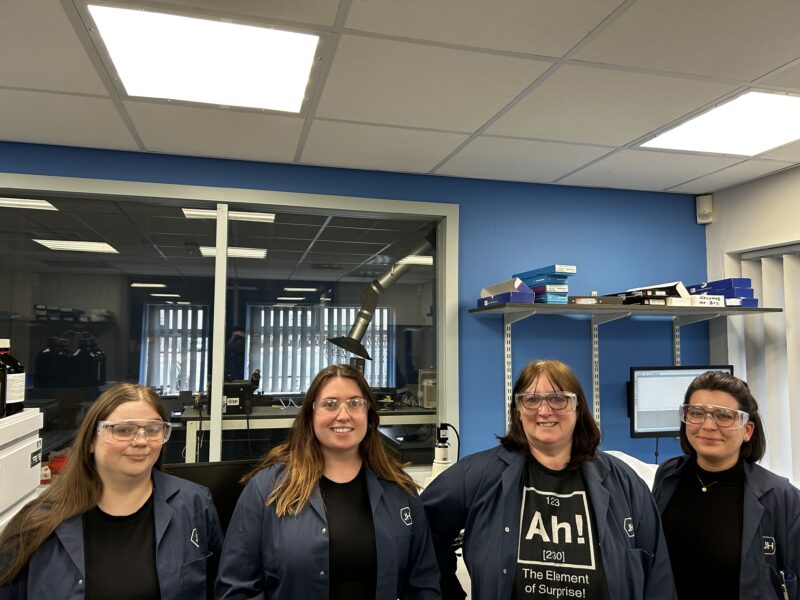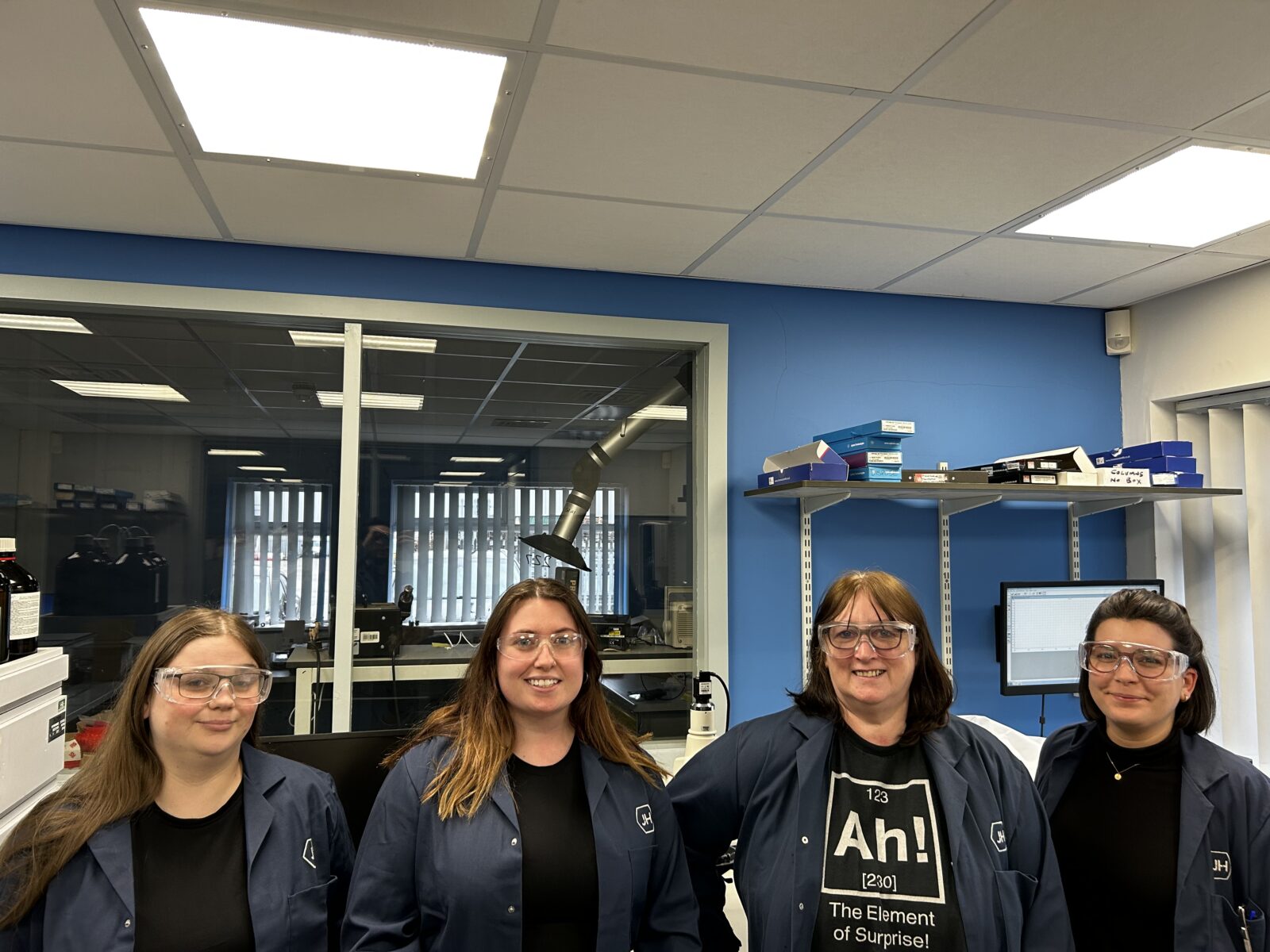
International WEEK of Women and Girls in Science – Lucile & Kat
ShareWelcome to the second part of our celebration of the International Day of Women and Girls in Science. The issues surrounding the gender gap in STEM fields are something that we feel need more than one day, to promote equality and inclusion in STEM roles for everyone. So, we decided to turn this into our very own International Week of Women and girls in Science! In this edition, we look into two more stories from our very own technical team members, Lucile & Kat, and about the opportunities they had to progress into a successful STEM career.
STEM – The industry or the opportunity?
UNESCO and the UN are combating prejudice, making sure that everybody has a fair and equal opportunity to progress within education. From 2000 – 2018, women’s enrolment into further education had doubled from 19%-41%, becoming the main beneficiaries of increased access to higher education worldwide. That being said, women going into STEM for further education has not seen the same level of increase, and ultimately are still being underrepresented in the industry.
This gender inequality in STEM is not just a problem that affects women, it also impedes a country’s development. According to UNESCO, only one in three researchers is a woman. In addition to that, women are typically given smaller research grants than their male colleagues and earn less recognition from their peers: only 12% of members of national science academies are women.
How can being provided with opportunities change your view on STEM, and how can we ensure that no-one is left behind?
We spoke to Lucile about some of the opportunities she was presented with during her journey through STEM, and how they have led her to be in the fantastic position she is in today. Lucile joined John Hogg in 2019 and is our Quality Control manager. Originally from France, Lucile moved to the UK 10 years ago.
“During school in France, you had the choice of either pursuing science, literature & language, or economics & business. Things started to align in the years that I had to choose my subjects, as I had really good STEM teachers. Chemistry was always my favourite, as throughout the following years I had 3 different great chemistry teachers. Some might describe them as a bit crazy, but it got me interested in the subject.”
Having good teachers has often been described as one of the crucial reasons for getting into a subject, a great opportunity for students to get inspired. A study of 11–18-year-olds, conducted by Kantar, asked UK students to select the most important characteristics of learning science. Results showed that 55% of all students mentioned the ability of the teacher to explain things interestingly and clear were the most valued characteristics.
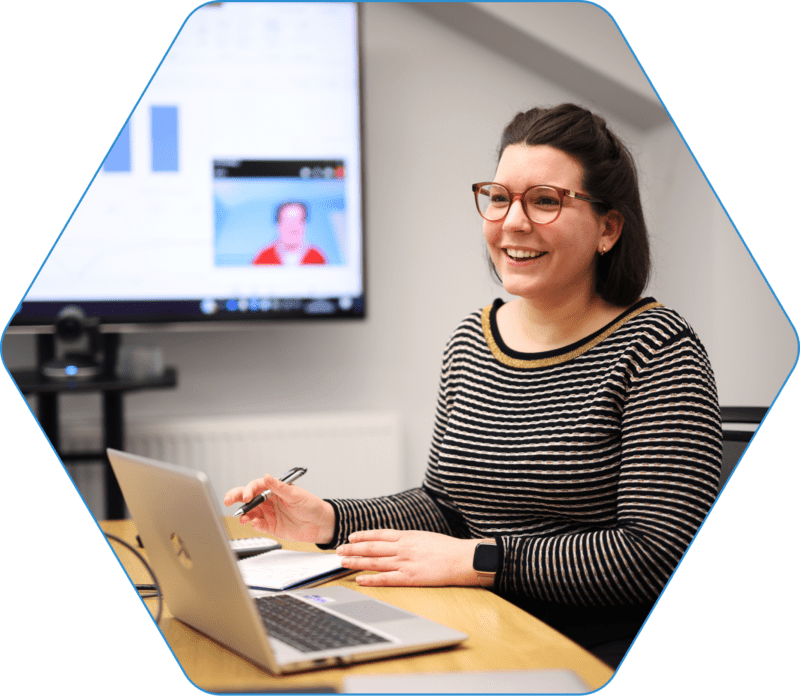 Lucile went on to describe her university life in Strasbourg, studying various chemistry fields and eventually moving to Montpellier, to study analytical chemistry with a focus on the environment.
Lucile went on to describe her university life in Strasbourg, studying various chemistry fields and eventually moving to Montpellier, to study analytical chemistry with a focus on the environment.
“During my time in Montpellier, I had the opportunity to go on many field trips to collect different samples of the earth, water & air, it was very interesting. During this year at university, I was looking for internships to validate my studies, which was a really hard process in France. That was until my English teacher asked if anybody would be interested in doing their internship in England, which I gladly took. Before then I had no intention of going to Manchester, the city definitely picked me. I was very grateful for the opportunity to have improved my chemistry knowledge, and also my English skills.”
Many students have moved to the UK for this kind of opportunity, with student numbers reaching 484,000 in 2022, an all-time high. Similar to Lucile’s case, having a good command of English helps to create more opportunities in global STEM careers.
But what about the UK students who already have these opportunities?
On top of the glaring gender gap in STEM subjects, science has a bigger problem in engaging younger people. The new generation of UK students are feeling less connected to science. The BSA (2022) studied 2000 14-to-18-year-olds, and highlighted that only 19% & 14% of boys & girls, respectively, thought that scientists were relatable and approachable, with only 12% of girls think scientists were speaking directly to them. Lucile shared her thoughts on this and offered some advice to the younger generation of students.
“I definitely think it’s harder for the younger generation to connect to science in the same ways. With the speed that technology is evolving, there is not enough being done about implementing science and other important subjects into their lives through social media. For this reason, look out for any science influencers on social media, hopefully there are some that can catch your interests! There is so much that science has to offer, and it’s always changing.”
Pursuing What You’re Good at
The final member of our technical team we spoke to was Kat, who joined John Hogg as a Quality Control Analyst in 2020. member of our technical team, Kat is part of the younger generation that a lot of the referenced studies include, so it was very interesting to discuss the opportunities she was given at school, and how she excelled through Chemistry.
“I grew up in Stockport, and basically got into Chemistry from school as it was one of the subjects that I did better in”, Kat said. “I went on to study triple science at high school and then moved onto Biology and Chemistry at A-Level.”
Kat discussed her time in the STEM club at school, where she had the opportunity to participate in extra-curricular school science events. These events are described by Gov.uk as being extremely beneficial for social life & confidence, yet a study from Kantar showed that at one school, only a third (32%) of year 7–13s had participated in any such events.
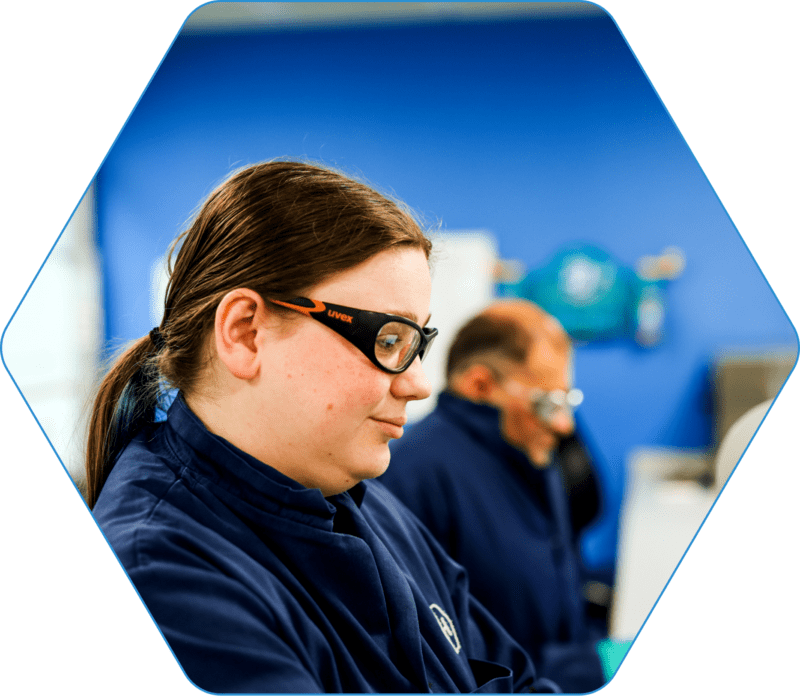 Kat went on to mention how she always wanted to do science. “It was something I always knew I had the opportunity to be good at, as both of my parents were already scientists.” Research from Kantar suggests that parents and wider family networks can be highly influential in the formation of scientific interest and aspirations.
Kat went on to mention how she always wanted to do science. “It was something I always knew I had the opportunity to be good at, as both of my parents were already scientists.” Research from Kantar suggests that parents and wider family networks can be highly influential in the formation of scientific interest and aspirations.
Kat then went on to describe her university experience at the University of Nottingham, which for the most part was very good. Interestingly though, Kat described an experience she had in the latter years of her university life, and even though she had an extensive portfolio in Chemistry, she was still discriminated due to her gender.
“During my third year at university, I went to the local council in Nottingham to look for the next stage in my career. When I got to the job centre, the lady tried explaining to me that I shouldn’t get a job in science, and instead I should be looking at admin and typing jobs…”
Even as part of the younger generation, Kat experienced some gender bias in science, which shows how far we are from where we want to be in the modern day. Kat also went on to discuss how there isn’t a lot of opportunity to transition into science as a teenager.
“There aren’t a lot of science programmes aimed at late teens and onwards. You get ones for the younger ages, and then it moves into the dry, lecture programmes that can’t capture the attention of teens.”
Across Europe, studies found that more young people claim to have discovered their dream job through watching TV series, rather than through media offerings or even universities in some instances. Not only is there a lack of STEM based shows, but women are also being underrepresented in STEM roles across TV Shows. They are portrayed mainly in ‘stereotypical occupations’.
Kat is a great example of how you should pursue something that you are good at. We asked if she had any advice for the younger generation on becoming interested in a STEM career.
“Science is everywhere! If you like problem solving, science has so much satisfaction with working things out and getting a result. There is so much to learn about science out there.”
In Summary
Through the stories we have explored during this week with female members of our technical team, there is work to be done in ensuring that not only are girls and women represented equally to men in STEM fields but are also encouraged into that path at a young age.
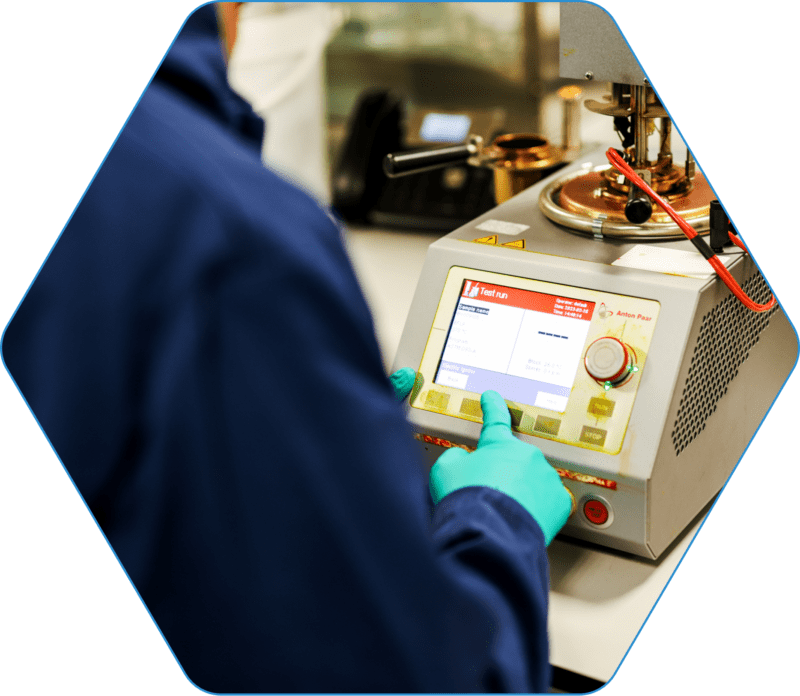 Some of the key findings from the first article, highlighted the importance of female role models, and conversely, the lack of female role models in science. This contrast was contextualised during both Lauren’s & Gill’s stories, which provided first hand evidence of how effective a good role model can be on someone’s career. Although both stories were drastically different, some of the same issues affected both of their journeys. The article discussed some very harsh gender inequality during the 1980’s, but highlighted the importance for the younger generation to not give up on their interests.
Some of the key findings from the first article, highlighted the importance of female role models, and conversely, the lack of female role models in science. This contrast was contextualised during both Lauren’s & Gill’s stories, which provided first hand evidence of how effective a good role model can be on someone’s career. Although both stories were drastically different, some of the same issues affected both of their journeys. The article discussed some very harsh gender inequality during the 1980’s, but highlighted the importance for the younger generation to not give up on their interests.
The second article discussed how employees at John Hogg felt about science growing up, with emphasis on some of the opportunities they were given. Their opportunities shed light into how they really fell in love with science, greatly improving their view on the subject. Shockingly, gender discrimination still occurred along the way. Even when a part of the younger generation, as discussed in Kat’s story. One recurring message throughout both stories, was the importance of having relatable science media for the younger generation. Whether it being on TV or social media, there is more to be done in this field to add a positive effect on younger students’ interests.
So, what is the International Day of Women and Girls in Science all about?
The International Day of Women and Girls in Science, celebrated annually on February 11th, was set up by the UN to tackle one of the greatest challenges of the Agenda for Sustainable Development. The day aims to promote full and equal access to science for women and girls, while also addressing the gender disparities prevalent in Science, Technology, Engineering and Mathematics (STEM) fields.
Gender equality has always been a core issue for the United Nations. Gender equality and the empowerment of women and girls will make a crucial contribution not only to economic development of the world, but to progress across all the goals and targets of the 2030 Agenda for Sustainable Development, as well.
John Hogg are proud to support the work being done by the UN to tackle gender equality issues in STEM fields.
